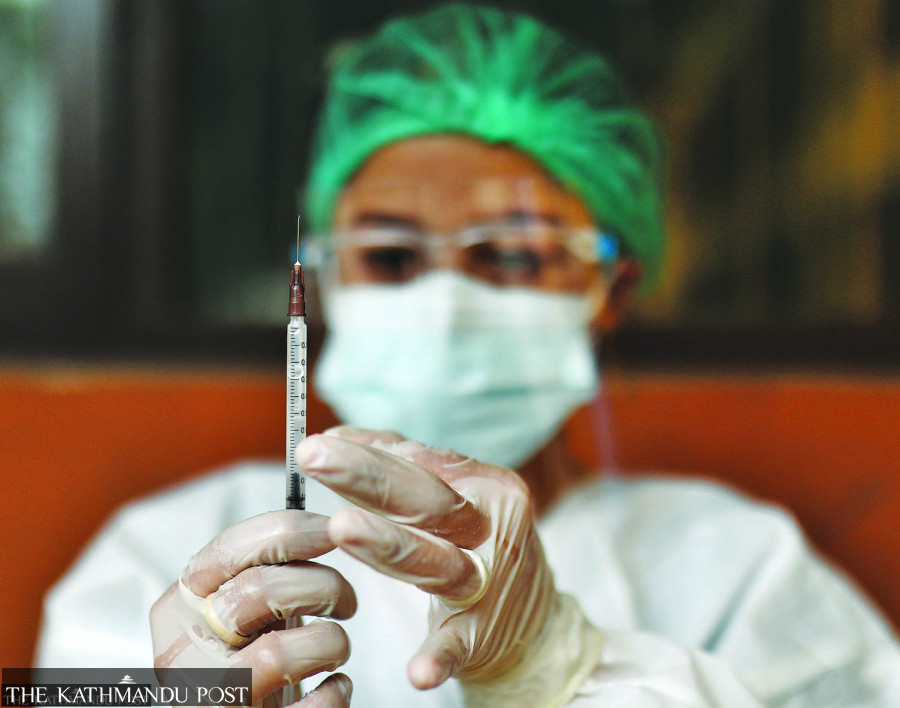Editorial
Start jabbing
Why is the government never prepared for anything that comes its way?
The vaccines have hardly reached the poorest countries yet. For quite some time now, we have been complaining, and for a good reason, that the rich countries have hoarded more vaccines than they need, and even wasted them even as poorer countries are having a hard time administering even the first doses. The rich countries have been at the top of the vaccine hierarchy, blocking the way for the poorer and disadvantaged populations of the world even when it is clear that there is no saving the world from the pandemic unless the entire global population is vaccinated.
In that sense, we in Nepal should feel lucky that we have received the vaccines, though late, and inoculated 30 percent of the eligible population fully as of now. But we seem to have arrived at a juncture where lethargy meets mismanagement on the road to vaccination. We have received a decent amount of vaccines, but a lack of sincerity on the part of the government has led to a mismatch between the number of vaccines we have received and the pace of vaccination. Clearly, we have focused more on acquiring vaccines than on administering them effectively.
As the government has received more vaccines than it can administer, it is learnt to have communicated to COVAX and other vaccine providers to delay shipments. That is as irresponsible as it gets at a time when the people are waiting to be inoculated. While hoarding vaccines is unethical at a time when vaccine inequity is rising in a deeply hierarchical global world order, the inability to administer the available shots to the population that is desperately waiting to be inoculated is irresponsible, to say the least. The situation is such that we cannot even afford to hoard the vaccines even if we wish to, for we have no sufficient storage for the same.
Nepal has had to store an unprecedented amount of vaccines at one go, which could have stretched the government's capacity in the beginning. But it is unintelligible how the government remains a mute spectator even when it is the one that should be taking the lead, be it in acquiring them or in storing them. While delaying the shipment is the last option we should have used so as to stop the vaccines from going to waste, there were more sensible options we could have used if officials had taken stock of the situation well in advance, and made preparations accordingly. Clearly, the problem has arisen not due to oversupply of vaccines but the government's inability to take the vaccines across the country. The best option the government has right now is to expedite vaccination of the unvaccinated so that we do not have an oversupply of the doses. At the same time, it can start administering the booster dose to the fully vaccinated so that we do not have to cut the supply chain right away for want of storage facilities.
As the government maintains complete leniency on Covid-19 safety protocols and the people gather in crowds in ever increasing numbers, the risk of mass-scale transmission is very much there. We have little option but to vaccinate the entire 78 percent of the eligible population. The government must show its work in action rather than ready-made claims that it is "working" to expand its storage capacity. When it comes to saving the lives of the citizens, the government should have no excuse to give.




 14.12°C Kathmandu
14.12°C Kathmandu














